
On this occasion, Mr. Jonathan Wallace Baker, UNESCO Representative in Vietnam, gave an interview to VNA reporter:
How do you assess the significance of Vietnam continuing to be trusted by member countries to be elected as Vice President of the 43rd UNESCO General Conference, especially in the context of UNESCO implementing many reform programs towards sustainable development?
The fact that Vietnam was re-elected by member states as Vice President of the 43rd Session of the General Assembly is a strong affirmation of UNESCO member states' trust in Vietnam's constructive diplomacy and consensus-based approach.
Being assigned this important responsibility for two consecutive terms clearly reflects the increasing position, prestige and reliability of Vietnam as a multilateral partner. This also demonstrates the international community's recognition of Vietnam's impressive development achievements and increasingly proactive and substantive participation in UNESCO as well as in other international cooperation forums.
Taking place at a time when UNESCO is strengthening its global leadership role in education , culture, science and information and communication, this event creates conditions for Vietnam to continue promoting good practices in connecting education, science, culture and sustainable development, thereby making practical contributions to common efforts and supporting the transformation of global priorities into concrete results in Vietnam and other countries.
Vietnam's election also continues to affirm Vietnam's image as a bridge between developing countries and the international community.
Also at the 43rd UNESCO General Assembly, the UNESCO General Assembly adopted a Resolution proposing that the United Nations consider launching an International Decade of Culture for Sustainable Development at the initiative of Vietnam. How do you assess the significance of the UNESCO General Assembly adopting a resolution on the International Decade of Culture for the first time in nearly 40 years?
UNESCO highly appreciated the 43rd UNESCO General Conference's approval of the draft Resolution proposed by Vietnam on the "International Decade of Culture for Sustainable Development". This is an initiative that has received strong consensus from member countries and is in line with UNESCO's strategic orientation on promoting the role of culture in sustainable development.
The initiative highlights the key role of culture in contributing to responding to global challenges, raising awareness, strengthening political commitment, mobilizing resources and promoting investment in the cultural and creative industries.
The adoption of the draft resolution also reflects Vietnam's proactive and responsible contributions to UNESCO in recent times. The UNESCO Office in Hanoi will continue to closely accompany Vietnam in the process of promoting the role of culture as an independent pillar of sustainable development.
In your opinion, how has Vietnam demonstrated its role and contributed to UNESCO's activities in recent times, especially in the fields of education, science and culture?
Vietnam is a dynamic and responsible member state, with practical contributions in all areas of UNESCO's activities.
In education, Vietnam has demonstrated leadership through bold reforms and a long-term vision in line with the Education 2030 Agenda. The issuance of Resolution 71-NQ/TW sets targets such as universal pre-primary and secondary education by 2030, building world-class universities by 2045, and a commitment to spend 20% of the state budget on education. The new Teachers Law and initiatives such as Happy Schools and participation in the Learning Cities Network demonstrate Vietnam’s strong commitment to inclusion, capacity building, and lifelong learning.
In terms of science, Vietnam has shown an active role through its extensive participation in key UNESCO programs. Vietnam currently has 11 Biosphere Reserves, 4 Global Geoparks and 2 Type II Centers for Mathematics and Physics. Hosting international events such as the 8th International Conference of the UNESCO Global Geoparks Network for Asia and the Pacific (2024), or the 32nd Session of the Steering Committee of the Intergovernmental Hydrological Programme for Asia and the Pacific (2025), clearly demonstrates Vietnam's role in promoting regional scientific cooperation. The Law on Water Resources (2023) and the Science - Technology - Innovation policy continue to demonstrate how Vietnam links science with sustainable development policymaking.
Notably, Vietnam has just published the "Artificial Intelligence (AI) Ethical Readiness Assessment Report" as recommended by UNESCO - an important milestone in promoting a human-centered, ethical and inclusive AI ecosystem.
In terms of culture, Vietnam is a typical partner of UNESCO in the field of heritage conservation and promotion. Vietnam currently has 9 World Heritage Sites, 16 Intangible Cultural Heritages and 4 Creative Cities (Hanoi, Hoi An, Da Lat and recently Ho Chi Minh City). Vietnam also actively integrates heritage conservation into national policies and effectively exploits UNESCO titles – such as at Trang An – to promote sustainable community tourism.
In the coming time, what does UNESCO expect from Vietnam as Vice President of the General Assembly Session and an active partner in promoting UNESCO's values of peace, inclusiveness and creativity?
As Vice President of the General Assembly, Vietnam is well-positioned to continue to engage with UNESCO's common agenda in a context where multilateral cooperation is facing many challenges.
UNESCO expects Vietnam to continue to promote its role as a bridge between regions and between developed and developing countries, contributing to ensuring that global policies are inclusive and that no country is left behind in the process of implementing the Sustainable Development Goals.
Vietnam can also continue to share its practical experiences in education reform, cultural preservation and promoting science-based innovation – areas in which Vietnam has made significant achievements. These successes provide valuable lessons on how to translate policies into practical results for people and communities. UNESCO believes that Vietnam will continue to be a voice for dialogue, peace and creativity.
Many thanks to Mr. Jonathan Wallace Baker, UNESCO Representative in Vietnam!
Source: https://baotintuc.vn/thoi-su/tin-tuong-viet-nam-se-tiep-tuc-la-mot-tieng-noi-cua-doi-thoai-hoa-binh-va-sang-tao-20251114182457641.htm






![[Photo] Unique art of painting Tuong masks](https://vphoto.vietnam.vn/thumb/1200x675/vietnam/resource/IMAGE/2025/11/14/1763094089301_ndo_br_1-jpg.webp)
![[Photo] Unique architecture of the deepest metro station in France](https://vphoto.vietnam.vn/thumb/1200x675/vietnam/resource/IMAGE/2025/11/14/1763107592365_ga-sau-nhat-nuoc-phap-duy-1-6403-jpg.webp)



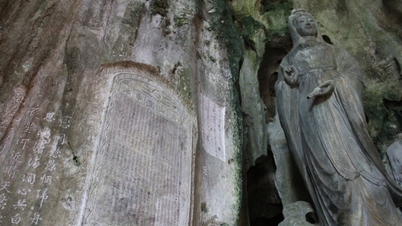



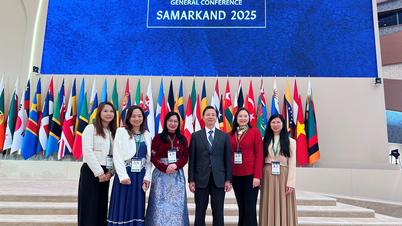

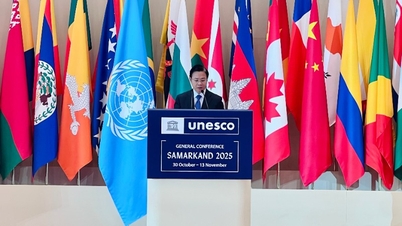


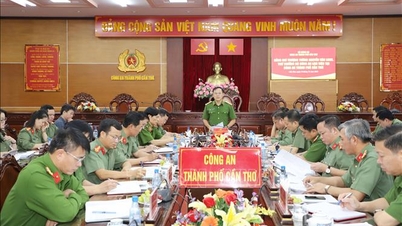
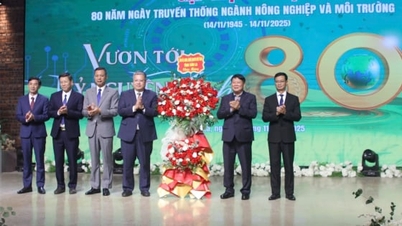

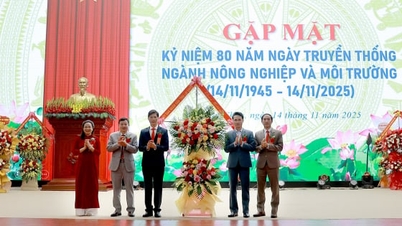
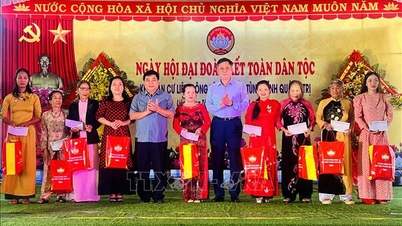
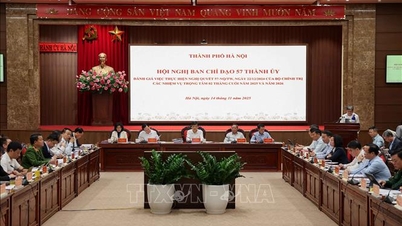




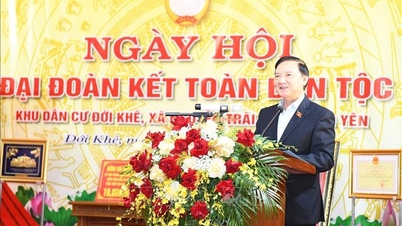
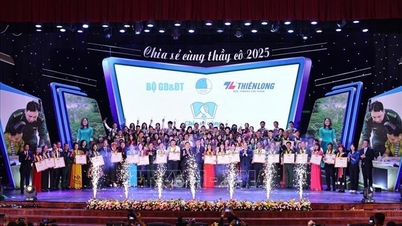
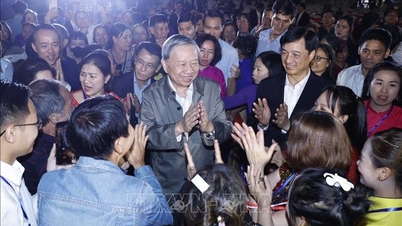
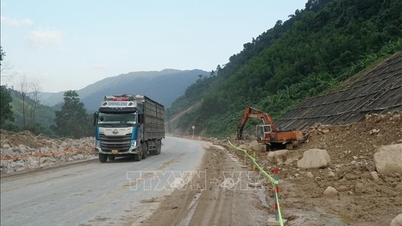
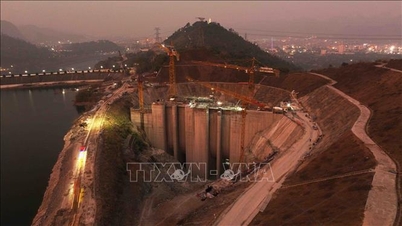
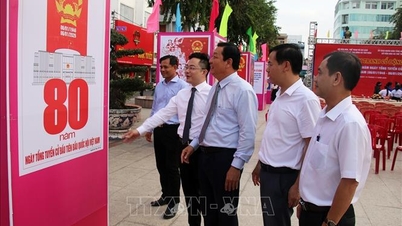

![[Photo] Special class in Tra Linh](https://vphoto.vietnam.vn/thumb/1200x675/vietnam/resource/IMAGE/2025/11/14/1763078485441_ndo_br_lop-hoc-7-jpg.webp)














































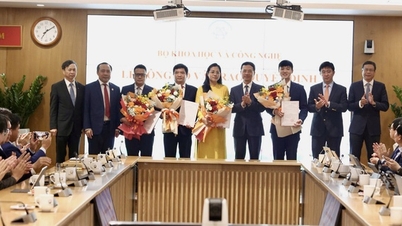


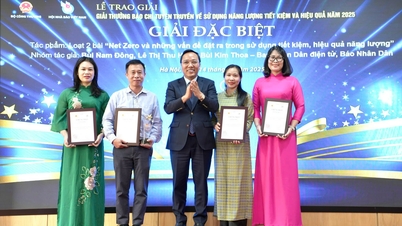
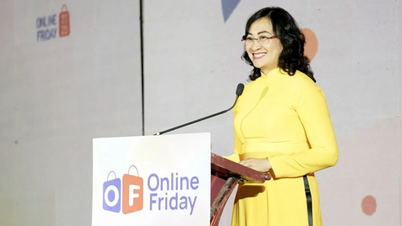

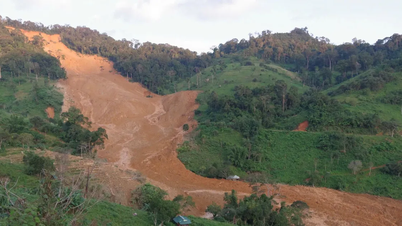

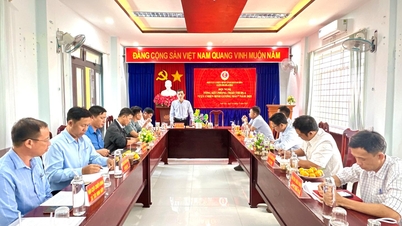

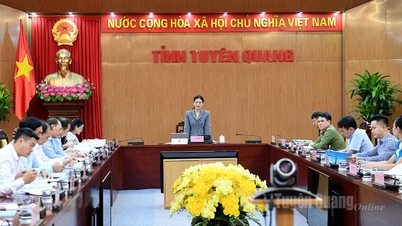

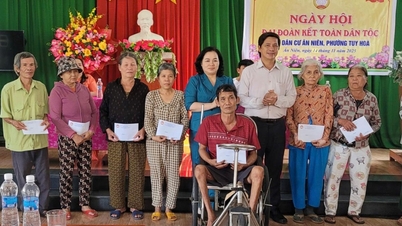

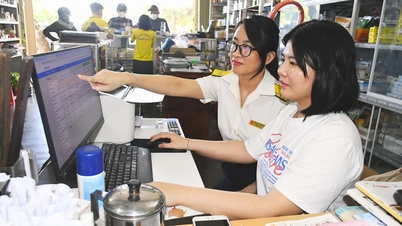










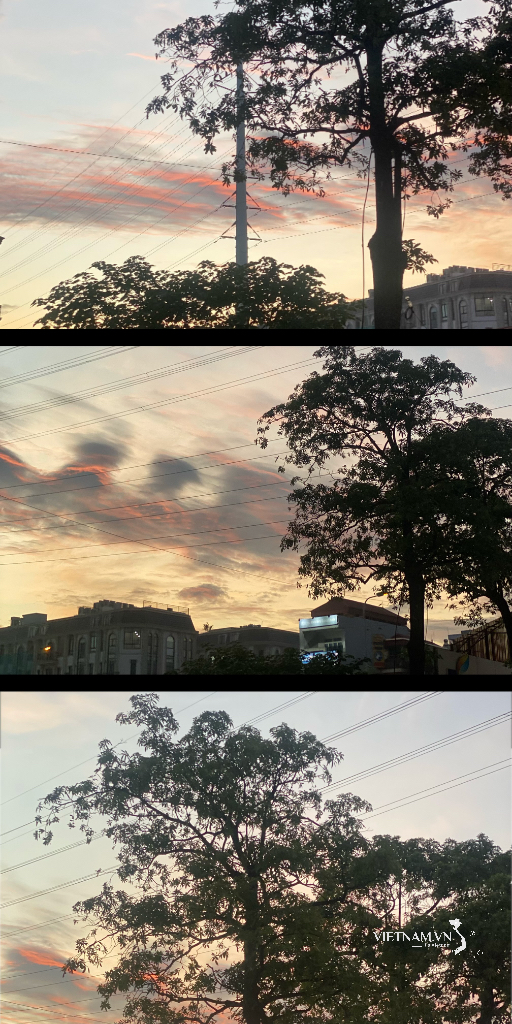

Comment (0)